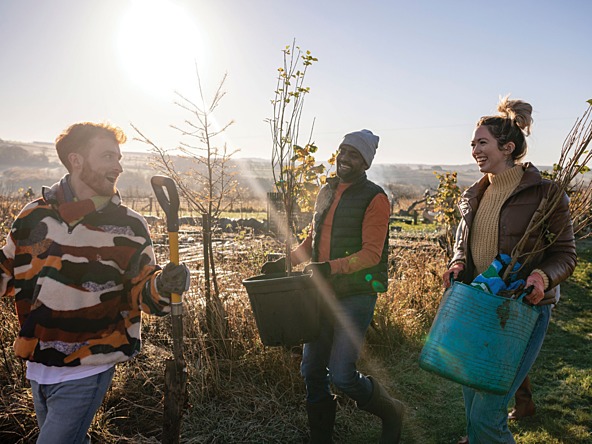FEATURE16 September 2024
Climate talks: Communicating sustainability
x Sponsored content on Research Live and in Impact magazine is editorially independent.
Find out more about advertising and sponsorship.
FEATURE16 September 2024
x Sponsored content on Research Live and in Impact magazine is editorially independent.
Find out more about advertising and sponsorship.
Communication about climate change should factor in local and cultural nuances, research from around the UK has highlighted. By Florencia Lujani.

Amid the ever-growing urgency of climate change, effective communication is paramount. At ACT Climate Labs, in collaboration with research company Bricolage, we recently shared insights from our research report Why words matter: how to speak to Brits about climate change.
It focused on a group coined as ‘Persuadables’, constituting 69% of the UK population. They typically see campaigning around climate as being for ‘others’ and ‘not people like me’. The research looked to bridge the cultural gap hindering climate-action engagement, with a special emphasis on rural dwellers, and working class and multi-ethnic communities.
Persuadables represent a significant majority of the UK population, yet their engagement in climate action is hindered by a cultural divide.
To try to reverse this, and find out which communication elements are producing the divide, we immersed ourselves in the culture of Persuadables. I travelled to Aberdeen, in Scotland, Pembrokeshire, in Wales, and the North-East and Midlands in England, to interview Persuadables and experts.
The research gave us a lot of insight into the themes and language that resonate with Persuadables. Language recommendations for campaigners crafting climate messages include:
Climate communications can feel very abstract to Persuadables. Effective communication should foster genuine dialogue, actively engage community members, and emphasise united efforts and practical solutions.
It can be brought to life through:
We identified that a ‘return to roots’ is a powerful call to action, advocating a return to the land and a renewed commitment to nature’s preservation. For Persuadable segments, this is a way forward in connecting and rediscovering cultural knowledge. It encourages the adoption of local solutions and re-engagement with traditional practices that empower communities to reclaim local, and maybe neglected, knowledge.
This can be used in:
More so than most, Persuadable cohorts have a need to prioritise their immediate vicinities. Re-evaluating climate communications through the perspective of our audience – to ensure they can always answer the question ‘What’s in it for me?’ – is key.
This can be done by:
By tailoring language and themes to specific audience segments, climate experts can bridge the cultural gap and inspire meaningful action towards a sustainable future.
Navigating the cultural landscape: speaking to working-class Brits about climate change
The research about the mindset of working-class communities was conducted in Aberdeen, Pembrokeshire and various locations in England.
Aberdeen’s economy transformed significantly with the influx of oil and gas investment during the 1970s, but it’s still influenced by heavy industries and socio-economic strife.
The research identified several critical themes for climate campaigners to consider to engage effectively with this demographic, including:
Among the Persuadables, the rural and semi-rural segment poses a unique challenge. We focused on the intricacies of rural Pembrokeshire, providing valuable insights into the mindset and narratives that shape the perspectives of this demographic.
Pembrokeshire, in the south-west of Wales, is a sparsely populated and rural part of the UK. Agriculture and tourism are key cornerstones of its economy, and the Welsh language is spoken by 17% of Pembrokeshire’s population.
The research identified several critical themes for climate campaigners to consider to engage effectively with this demographic:
To better understand the mindset of multi-ethnic communities, we carried out research in Nottingham, particularly focusing on the perspectives of Black British and Southeast Asian populations.
Nottingham serves as a microcosm for studying multi-ethnic communities. With a growing population, including 13.1% British Asians and 7.3% Black British residents, the research identified six critical themes for climate campaigners to consider to engage effectively with this demographic. These include:
Understanding the cultural nuances revealed by our research is paramount for effective climate communication. By embracing the findings and tailoring messages, we can foster engagement, build trust, and make climate change a relevant issue for ‘people like me’.
As we navigate the climate crisis, words matter, and understanding cultural nuances is key to unlocking engagement and fostering positive change.
Florencia Lujani is strategy director at ACT Climate Labs
This article was first published in the July 2024 issue of Impact
0 Comments